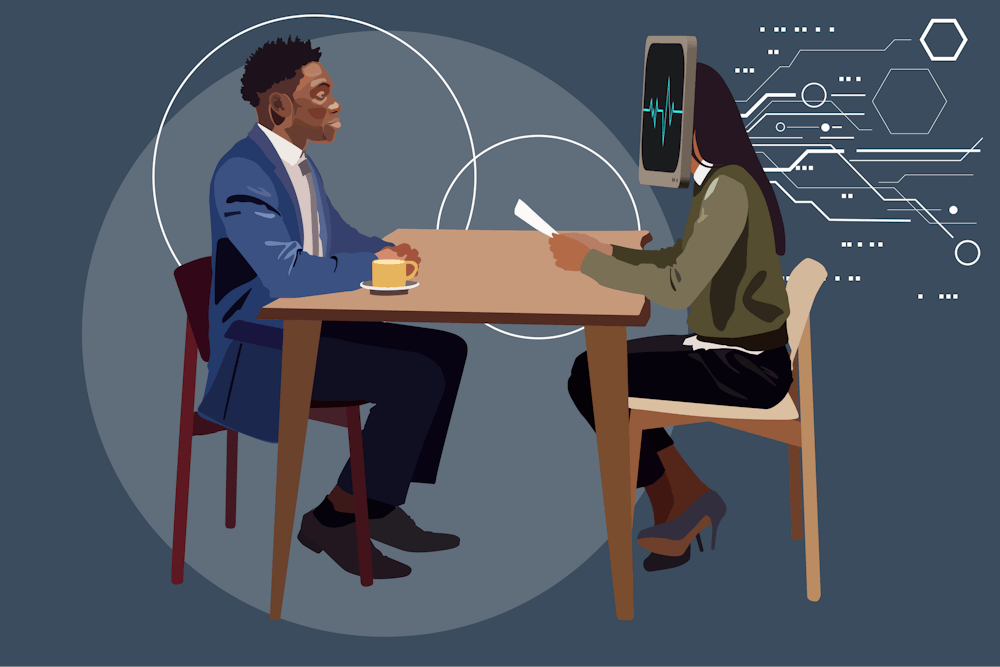Internship season is well and truly upon us. If you’re a junior, like me, you’re likely knee-deep in applications and frequently experiencing anxiety-induced nightmares about missing deadlines. At this point, most of us could probably recite our resume word for word and write a cover letter in our sleep.
Why the stress, you ask? Oh, it’s only our careers on the line. The dream is to snatch up an internship this summer and impress them so much that they offer you a job once you graduate. That way, instead of losing hair your senior year over scoring a job offer, you can actually, I don’t know, enjoy it before adulthood takes its full form.
Two weeks ago, I got my first email from a company requesting an interview with me after reviewing my application. When I read the email past the word "congratulations," I found instructions on how to complete a recorded interview.
When I consulted my friends for advice on how to perform best in these types of interviews, I found out that not only had most of them completed similar interviews, but they also had been introduced to interviews using artificial intelligence. This was news to yours truly.
Turns out, these AI interviewers could track how often you smile, when your eyes stray from the camera and your use of filler words.
AI is everywhere now. It’s in our phones, our cars, our homes and even our classrooms with platforms such as ChatGPT. It’s at the forefront of most conversations surrounding innovation and I imagine companies are in a race to see who can utilize it best and fastest. And if we can trust it to steer our cars, then we can trust it to staff our workplaces, right?
Harvard Business Review estimates as many as 86% of all employers are now limiting or eliminating human involvement in the initial stages of the interview process and replacing the interviewer with artificial intelligence.
As an introvert, I was initially excited about this new interviewing approach, as I don’t always love meeting new people. However, this experience taught me that I would certainly rather talk to a real human when trying to make a case for myself.
Explaining my portfolio and passions to my laptop camera felt weirdly dehumanizing. The only thing guaranteed to listen to my answers were the four walls of my house.



